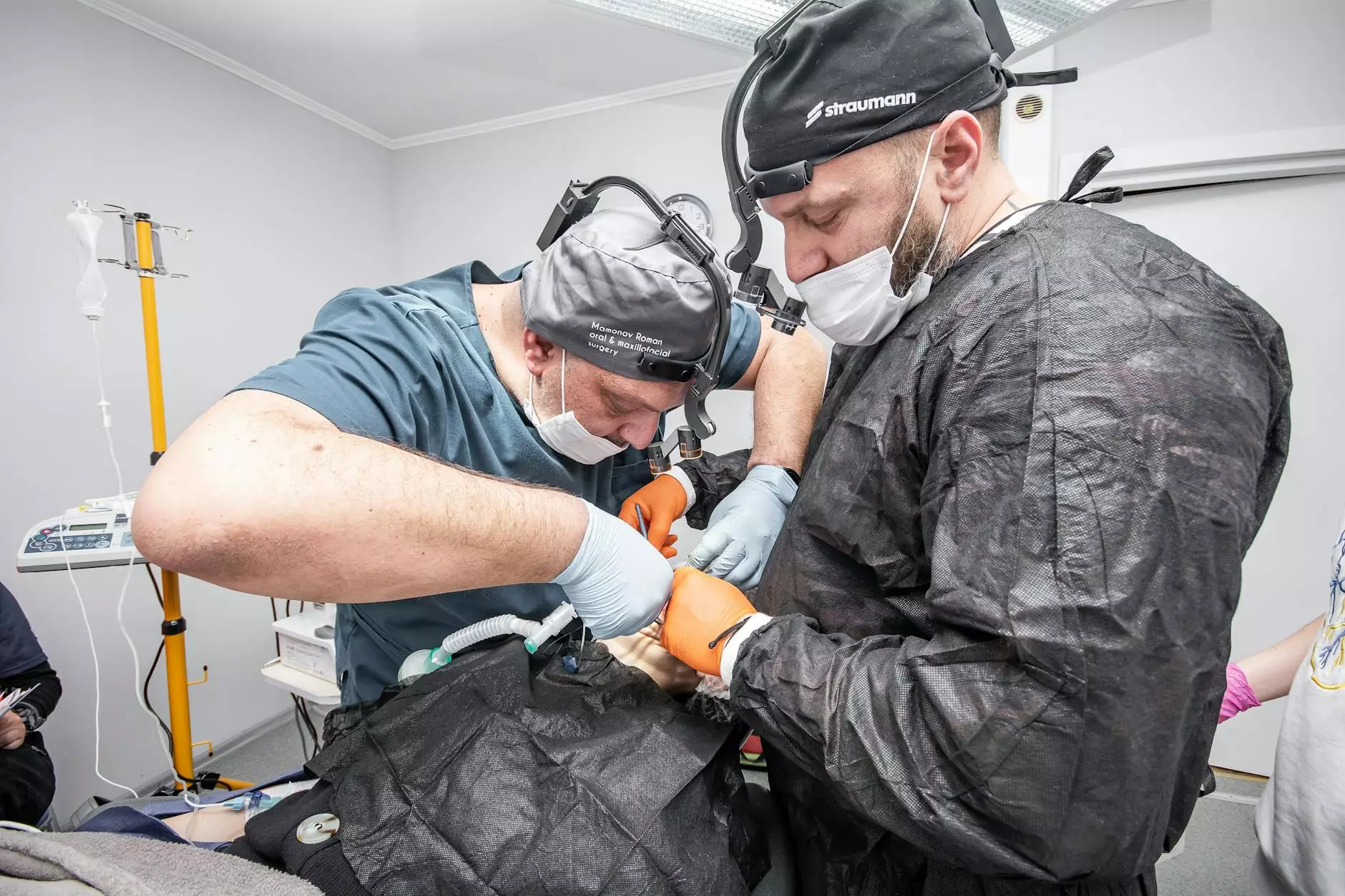Total Abdominal Hysterectomy Surgery Procedure

A total abdominal hysterectomy (TAH) is a surgical procedure involving the complete removal of the uterus and the cervix. This procedure is often recommended for various medical conditions related to a woman's reproductive health, such as fibroids, endometriosis, chronic pelvic pain, uterine prolapse, and certain types of cancer.
Understanding the Indications for Total Abdominal Hysterectomy
There are numerous indications for performing a total abdominal hysterectomy. Each condition varies in severity and impact on a woman's health. Here are some common reasons why a gynecologist may recommend this surgery:
- Uterine Fibroids: Noncancerous growths in the uterus that can cause heavy bleeding and pain.
- Endometriosis: A painful condition in which tissue similar to the lining of the uterus grows outside the uterus.
- Uterine Prolapse: Occurs when the uterus descends into the vaginal canal due to weakened pelvic muscles.
- Cancers: Diagnosis of cancer in the uterus, ovaries, or cervix may necessitate this procedure.
- Chronic Pelvic Pain: Persistent pain that isn’t responsive to other treatments may lead to a surgical option.
Consultation and Preoperative Preparation
Before undergoing a total abdominal hysterectomy surgery, it’s essential to have a thorough consultation with your healthcare provider. During this consultation, patients will discuss their medical history, undergo necessary diagnostic tests, and receive information on what to expect before, during, and after the surgery.
Common preoperative evaluations include:
- Pelvic Examinations: To assess the condition of the reproductive organs.
- Imaging Studies: Such as ultrasounds or MRIs to visualize the uterus and surrounding structures.
- Blood Tests: To evaluate overall health and check for anemia.
- Discussion of Medications: Review any current medications and discuss which ones may need to be stopped ahead of surgery.
The Total Abdominal Hysterectomy Procedure
The actual total abdominal hysterectomy surgery procedure can vary depending on the surgeon’s techniques and patient circumstances. However, the process generally includes the following steps:
- Anesthesia: Patients are given general anesthesia to ensure comfort during the surgery.
- Incision: The surgeon makes a horizontal (or sometimes vertical) incision in the lower abdomen to access the uterus.
- Uterus Removal: The surgeon carefully detaches the uterus and cervix from surrounding structures, including blood vessels, and removes them through the incision.
- Other Structures: If necessary, the surgeon may also remove the ovaries and fallopian tubes during this procedure.
- Closure: The incision is then closed with stitches or staples, and the area is dressed to prevent infection.
Postoperative Care and Recovery
Recovery from a total abdominal hysterectomy involves both physical and emotional aspects. Understanding the expected healing process is vital:
- Hospital Stay: Patients typically remain in the hospital for 1 to 2 days post-surgery, though this may vary.
- Rest and Activity: It’s crucial to rest and gradually reintroduce light activities as advised by healthcare providers.
- Pain Management: Pain relief medication will be prescribed to manage discomfort during the healing process.
- Follow-up Appointments: Patients should attend scheduled follow-ups to monitor recovery and address any concerns.
- Long-term Recovery: Full recovery may take up to six to eight weeks, during which patients should avoid heavy lifting and strenuous exercise.
Emotional and Psychological Effects
Undergoing a total abdominal hysterectomy can have emotional and psychological impacts. Many women experience:
- Feelings of Loss: The removal of the uterus may invoke feelings of loss related to one’s reproductive capacity.
- Changes in Identity: Some women may struggle with their identity post-surgery.
- Adjustment to New Norms: It’s essential to adapt to lifestyle changes, including hormone therapy if ovaries are removed.
It’s advisable to seek support from counselors or support groups during the recovery process.
Potential Complications of Total Abdominal Hysterectomy
As with any surgical procedure, there are potential risks involved with a total abdominal hysterectomy. Complications may include:
- Infection: There is a risk of infection at the incision site or internally.
- Bleeding: Excessive bleeding may occur during or after the procedure.
- Anesthesia Risks: Reactions to anesthesia are rare but can happen.
- Bladder or Bowel Injury: Surrounding organs can be injured during the surgery.
- Emotional Health Problems: Some women may experience feelings of depression or anxiety.
Discussing these concerns with your doctor beforehand is critical for informed consent.
Lifestyle Considerations Post-Hysterectomy
After a total abdominal hysterectomy, certain lifestyle adjustments may be necessary for optimal recovery and wellbeing. Consider the following tips:
- Nutrition: Eating a balanced diet rich in vitamins and minerals aids recovery. Foods high in fiber can help prevent constipation.
- Hydration: Staying adequately hydrated is essential for overall health.
- Regular Check-ups: Keep regular appointments with your healthcare provider to monitor recovery progress.
- Physical Activity: Gradually reintroduce gentle exercises as told by your doctor to improve physical health.
- Mental Health: Engage in activities that promote mental wellbeing, like yoga, meditation, or art.
Conclusion
The total abdominal hysterectomy surgery procedure is a significant step for many women facing complex medical conditions. With thorough discussions with healthcare providers, comprehensive preoperative assessments, and careful postoperative care, women can navigate the challenges of this surgery with better outcomes. Always prioritize open communication with your medical team, and take the time to understand your health choices fully.
For more detailed information about total abdominal hysterectomy and to schedule a consultation, visit Dr. Seckin's website. Empower yourself with knowledge and take charge of your health today!









